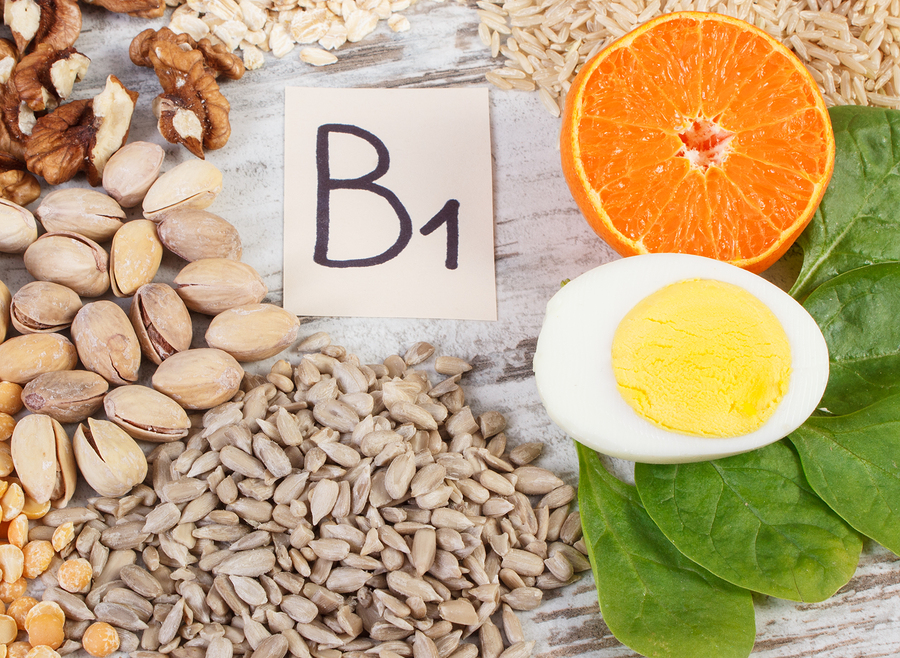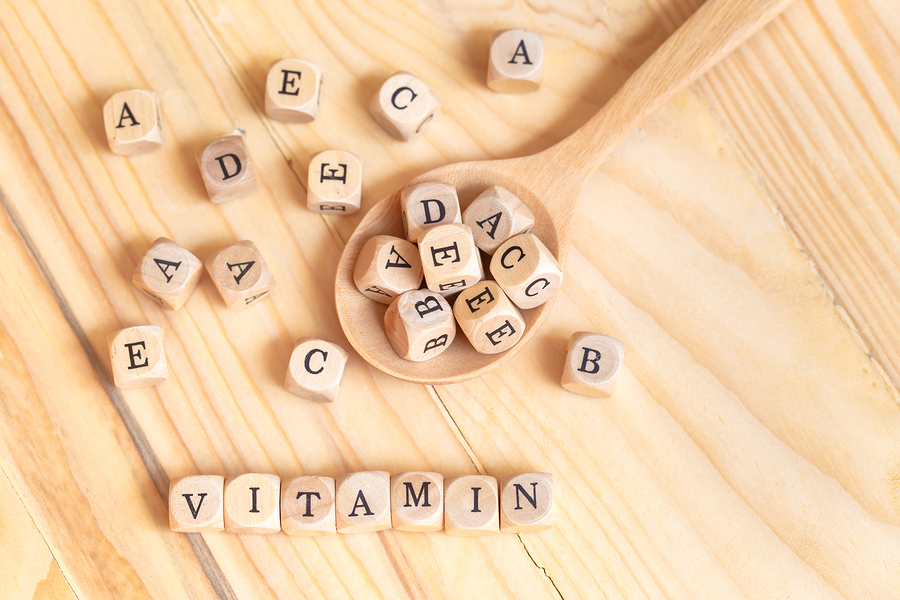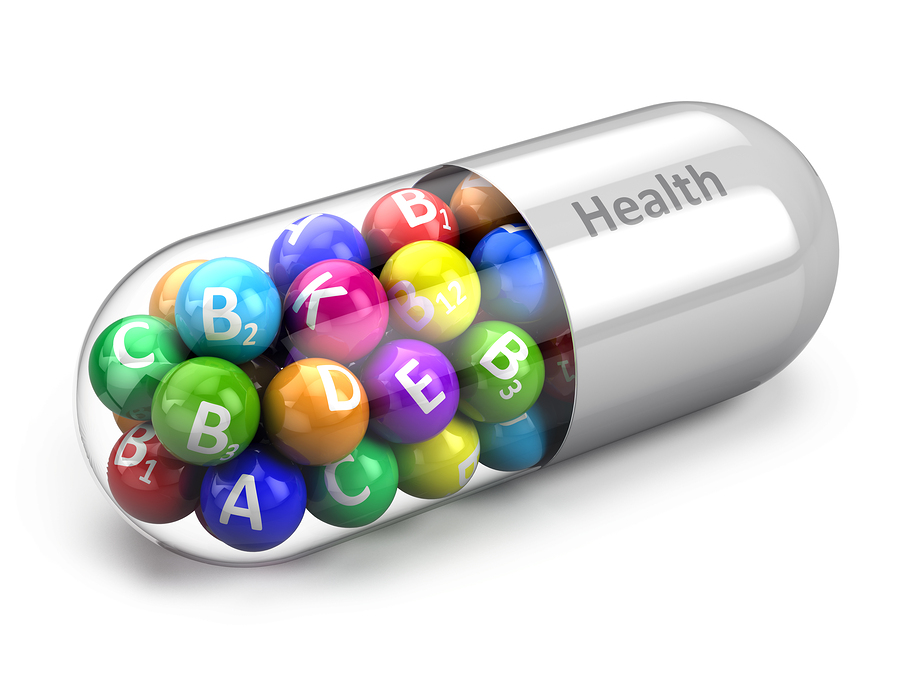- Make It Yourself Lavender Heart-Shaped Bath Bombs!
- 20 Things You Never Knew About “Down There”
- 12 Best Foods For Those Suffering From Arthritis Pain
- 12 Personal Hygiene Mistakes Almost Everyone Makes (Mom Never Told You About #4!)
- 15 Medicinal Plants And Herbs From The Cherokee People
- 12 Mind-Blowing Benefits Of Drinking Coconut Water During Pregnancy
- 12 Outstanding Winter Foods That Won’t Fatten You Up Like A Christmas Turkey
How B Vitamins Help The Nervous System
Functions of B vitamins in the body
The whole range of B vitamins is vitally important for various functions in the body. These functions include promoting energy production, the formation of red blood cells, building up immunity, and a having a healthy nervous system to name but a few.
There are eight specific vitamins which form the B group. They are able to work together, or individually, to keep the body – and in particular the nervous, or neurological system as it is also known, in good health. Each B vitamin plays a role in the nervous system, some minor, and some major – such as vitamin B 12, which is essential for proper development of the brain and nerve cells.
A deficiency of B vitamins in general may display symptoms such as skin outbreaks, mouth ulcers, loss of muscle strength, frequent infections, mood changes, and tingling in hands and feet.
Continue to Page 2
A healthy brain
Here are the B vitamins that are necessary to maintain neuro and nervous system health.
- Thiamine – B1.
- B1 is found in the brain and nerve tissue. It plays an important role in the communication of nerve cells from the brain to the body.
- When lacking B1, a chronic memory disorder may develop – one which is sometimes seen in those suffering from alcoholism and aids.
- Riboflavin – B2.
- B2 also plays an important part in the transmission of neuro impulses.
- Research has shown that a deficiency of B2 can lead to migraines, and a higher risk of contracting Parkinson’s disease, Alzheimer’s, and multiple sclerosis.
- Niacin – B3.
- This B vitamin is well-known for helping to reduce bad cholesterol levels and regulating body functions. B3 also stimulates brain function and improves energy levels.
- Pyridoxine – B6.
- Studies have indicated that B6 is used in more than 100 biochemical reactions in the nervous system.
- Promotes proper blood production, which prevents anaemia and low energy problems.
- Having enough of B6 helps to keep the memory sharp and prevent depression.
- Folic acid – B9.
- Folic acid helps to reduce homocysteine in the brain. Homocysteine is an amino acid present in the brain, and high levels may contribute to dementia, Alzheimer’s, and severe memory loss. B9 can lower levels of homocysteine, and reduce the risks of serious negative brain and neurological issues.
- B9 is essential for the production of healthy nerve tissue, to boost brain function.
- A deficiency of B9 during pregnancy may increase the risk of spina bifida in the developing foetus, as well as other defects of the central nervous system.
This group of B vitamins all have important roles in the support of healthy nervous system.
Continue to Page 3
The story continues
Not mentioned in the group of B vitamins above, is cobalamin – which is vitamin B12.
B12 is the most essential vitamin for the proper development and functioning of the brain and nerve cells. A deficiency of B12 has been found to cause neurological and psychological problems, especially in adults over 40 years old. Only on very rare occasions does it affect folks younger than 40 years old.
Various studies have also shown that a lack of vitamin B12 may cause a serious degeneration of the nervous system, which can do damage to the body as a whole.
Here are some of the ways vitamin B12 is of enormous benefit to the nervous system.
- Plays a major role in the formation of the myelin sheaths which protect the nerve endings of the nervous system. If the myelin sheaths are not properly maintained and begin to degenerate, it can potentially lead to damage of the peripheral nerves such as those of the eyes, fingers, toes, the bladder, and the male sexual organ. There are some medical opinions that believe a lack of B12 makes the risk of contracting multiple sclerosis higher.
- Research has also shown that a B12 deficiency is more prominent in those suffering from dementia, parkinson’s and alzheimer’s.
- There is a risk factor of increased homocysteine levels when B12 is deficient. This could put you at an increased risk for a stroke or vascular disease, which can affect mental capacity.
- Vitamin B12 and B9 together play very meaningful roles in brain development, especially during the pregnancy stage, and the first two years of a child’s life. These two vitamins are actually important up until puberty, until the myelin sheaths which protect the nerve endings, are fully developed.
Studies have shown that B12 is a hugely important nutrient which is necessary for good brain health, and should be maintained virtually from conception to old age, to support a healthy nervous system.
Continue to Page 4
Which are the best foods for taking B vitamins into the system?
All of the B vitamins are water-soluble and need to be ingested daily to prevent shortages. The exception is B12, as the body stores up quantities for later use, making a major deficiency somewhat rare.
Here are some of the foods which are rich in the complex range of B vitamins.
- B6 and B9 are found naturally in beans, poultry, fish, dark leafy greens, and in citrus fruit like oranges.
- Animal products such as dairy, poultry, lean beef or mutton, eggs, and fish, are extraordinarily rich in vitamin B12.
- B3 and B2 are found in foods such as legumes, mushrooms, leafy green veggies, whole grain products, dairy – including cottage cheese, and poultry. Lean cuts of beef and pork are also excellent choices.
- Lean beef, liver, pork, nuts, eggs, beans and peas, as well as fortified cereals and pasta, are extremely beneficial for getting enough B1 into the system.
Not always easy!
Getting sufficient B vitamins from the diet is not always an easy task, made even worse by the fact that, (except for B12 which is stored in the body), the others that are not used are eliminated from the body.
Health experts agree that good, natural B vitamin supplements can take up the slack when not provided by the diet.
B vitamins are not toxic, so you cannot overdose, even if you feel your diet is top notch.
The body will use what it needs – and the rest will pass harmlessly out of the system.
References:




































